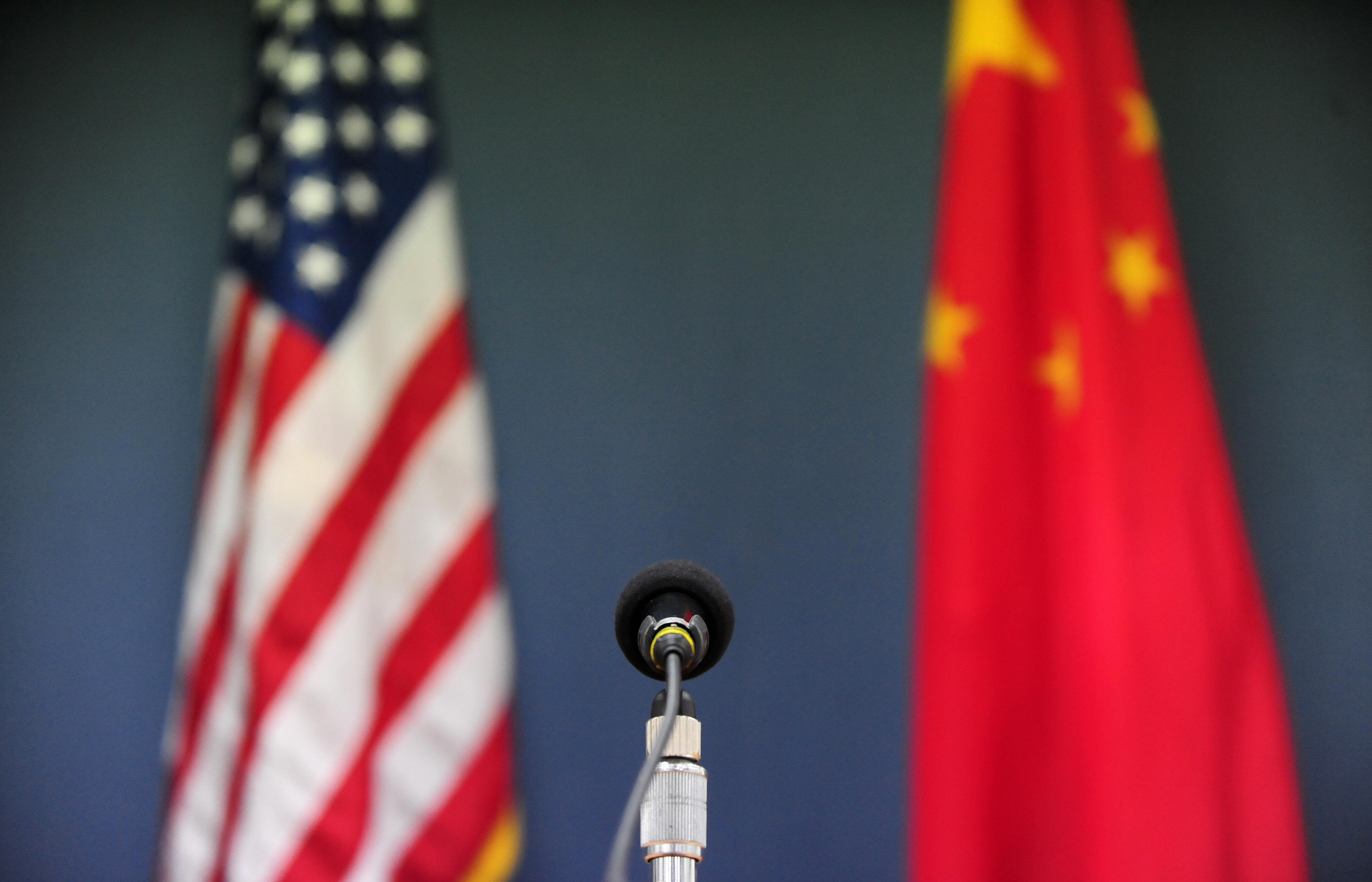
BEIJING — Another high-level meeting between U.S. and Chinese officials — this time in the Chinese city of Tianjin, just outside of Beijing — concluded Monday with criticism from both sides.
Before the talks even ended, China’s Ministry of Foreign Affairs said in a release that Vice Foreign Minister Xie Feng said in discussions Monday with U.S. Deputy Secretary of State Wendy Sherman the two countries’ relationship “is now in a stalemate and faces serious difficulties.”
“Fundamentally, it is because some Americans portray China as an ‘imagined enemy,'” the English-language release said, adding, “We urge the United States to change its highly misguided mindset and dangerous policy.”
The statement said, however, China still wanted to work with the U.S., on the condition leaders “change course” and adhere to Chinese interests.
State news agency Xinhua said Xie subsequently told media the Chinese side presented the U.S. with two lists, one of “errors” it needed to address, and the other of issues Beijing considered important.
The first list called for the U.S. to withdraw its extradition request of Huawei CFO Meng Wanzhou, lift sanctions on Chinese officials, remove visa restrictions on Chinese students, stop suppressing Chinese companies, among other requests.
When asked about the lists on a call with reporters following the meeting, senior U.S. administration officials did not name the items, but said generally that both sides raised issues and the U.S. planned to follow up with the Chinese concerns.
The U.S. officials declined to comment to reporters on Xie’s characterization of the meeting. The officials said the four hours of discussions were direct, very candid and constructive, and covered well-known issues ranging from Hong Kong to Iran.
However, the two sides did not talk about a meeting between the leaders of the two countries, the U.S. officials said, noting it was up to China to take that next step.
They said an official readout of the meeting was forthcoming.
Tensions between the U.S. and China have escalated in the last several years. Former U.S. President Donald Trump used tariffs and sanctions in an attempt to address longstanding criticism against China, such as unequal market access, lack of intellectual property protection and forcing businesses to transfer technology in order to operate in the country.
Under President Joe Biden, the U.S. has increased its criticism of Beijing over alleged human rights abuses in regions such as Xinjiang and Hong Kong. Beijing considers those matters part of its “internal affairs.”
On Monday, Xie claimed that in contrast to such “interference,” “China has never coerced any country.”
“The comments sit awkwardly with China’s existing diplomatic disputes,” Nick Marro, lead, global trade, at The Economist Intelligence Unit, said in an email, pointing to disagreements with India and Australia, among others.
“The US is paying very close attention to all of these different hot spots, partially to capitalise on any opportunities whereby frustration with China drives third countries more into alignment with the US,” Marro said. “As a result, it’s unlikely that the Chinese vice foreign minister’s comments are going to be well received by the US delegation, much less prompt a rethink in Biden’s wider strategy towards Asia.”
Sherman is in China for a meeting with her counterparts there Sunday and Monday.
The goal of the meeting was not a negotiation, but an effort to keep high-level communication channels open, senior State Department officials said in a briefing with reporters over the weekend.
The U.S. officials expected to meet with Xie first, and then Chinese Foreign Minister Wang Yi second.
The leaders are expected to work toward the first meeting of Chinese President Xi Jinping and Biden, likely around the G-20 summit in October.
State Department spokesman Ned Price said at a briefing Wednesday that Sherman would travel to China “from a position of strength,” similar to Secretary of State Antony Blinken’s meeting with his Chinese counterparts in Anchorage, Alaska.
That gathering in March, the first high-level meeting between the two countries under Biden’s administration kicked off with an exchange of insults.
In subsequent months, China’s Vice Premier Liu He, who led trade negotiations during the Trump administration, held phone calls with U.S. Treasury Secretary Janet Yellen and U.S. Trade Representative Katherine Tai. These economy-focused conversations were more amicable, according to official readouts.
Tough U.S. stance on China
Biden has not only maintained his predecessor Trump’s tough position on China, but is working more with U.S. allies in putting pressure on China overall.
U.S. Defense Secretary Lloyd Austin is also set to travel to Singapore, Vietnam and the Philippines, while Blinken will visit India.
Both the U.S. and China “have a lot at stake” in working toward a meeting between Biden and Xi, and will try to show the relationship “is not going completely off the rail” while appearing strong, Michael Hirson, practice head for China and Northeast Asia at Eurasia Group, said Monday on CNBC’s “Squawk Box Asia.”
He said Biden has been able to convince major G-7 countries to make strong statements against China, but has “not yet articulated a trade strategy or another approach that would really be effective in countering China’s economic strength.”
— CNBC’s Yen Nee Lee contributed to this report.




